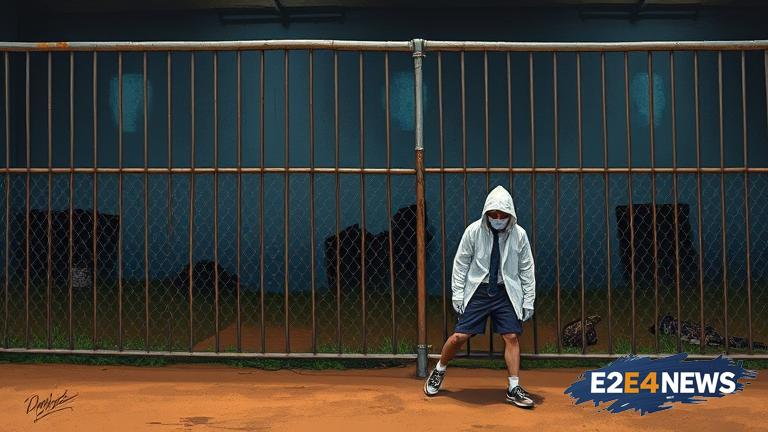The Northern Territory’s government has introduced a new youth justice law that has been met with widespread criticism from human rights groups and advocates. The law allows for the use of spit hoods on young offenders, which has been described as a form of torture. Spit hoods are mesh bags that are placed over a person’s head to prevent them from spitting, but they can also restrict breathing and cause distress. The use of spit hoods has been banned in many countries due to concerns over their safety and human rights implications. The new law also increases the length of time that young people can be detained, which has been criticized for being too harsh. The Northern Territory has one of the highest rates of youth incarceration in the world, with many young people being locked up for minor offenses. The new law has been criticized for failing to address the root causes of youth crime, such as poverty and lack of opportunities. Instead, it focuses on punishment and detention, which has been shown to be ineffective in reducing crime rates. The law has also been criticized for its impact on Indigenous young people, who are already disproportionately represented in the justice system. Many Indigenous young people are locked up for minor offenses, such as stealing or vandalism, and are often subjected to harsh treatment and poor living conditions. The use of spit hoods and increased detention periods will only exacerbate these problems, critics argue. The Northern Territory government has defended the law, saying that it is necessary to keep the community safe and to prevent young people from committing further crimes. However, many experts argue that this approach is misguided and that it will only lead to more harm and suffering for young people. The law has been criticized by human rights groups, including Amnesty International and the Human Rights Commission. These groups argue that the law violates international human rights standards and that it will have a disproportionate impact on vulnerable young people. The law has also been criticized by many in the community, including parents and teachers, who argue that it will only make things worse for young people. The Northern Territory government has been accused of ignoring the evidence and failing to listen to the concerns of the community. The law is seen as a knee-jerk reaction to a perceived problem, rather than a thoughtful and considered approach to addressing the root causes of youth crime. The use of spit hoods and increased detention periods is a form of punitive justice that will only lead to more harm and suffering for young people. Instead, the government should be focusing on prevention and rehabilitation, such as providing support and services to young people and their families. This could include programs to address poverty and lack of opportunities, as well as counseling and mentoring services to help young people get back on track. The Northern Territory government should be working to reduce the number of young people in detention, rather than increasing it. This could involve investing in community-based programs and services, such as youth centers and outreach programs, to provide support and guidance to young people. The government should also be working to address the systemic issues that contribute to youth crime, such as poverty and racism. By taking a more holistic and compassionate approach, the government could help to reduce crime rates and improve outcomes for young people. However, the new law suggests that the government is more interested in punishment and detention than in finding solutions to the problems faced by young people. The law is a step backwards for the Northern Territory and will only serve to exacerbate the problems faced by young people. It is a missed opportunity to address the root causes of youth crime and to provide support and services to young people and their families.
